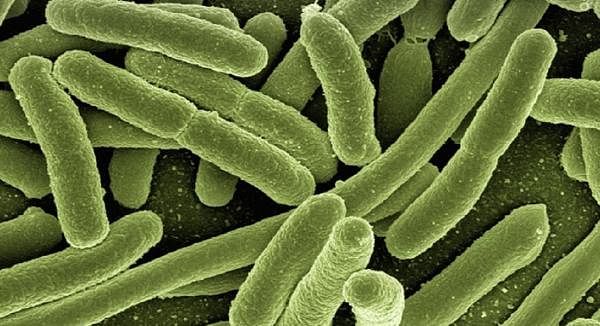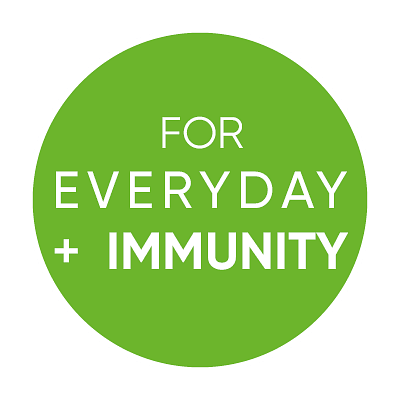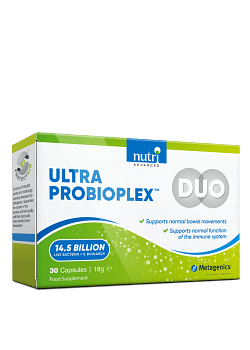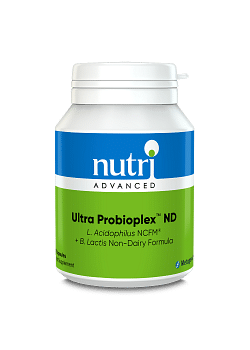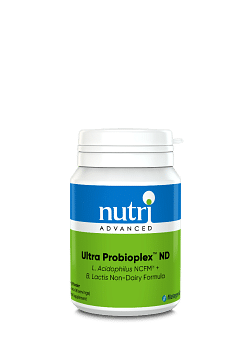Confused about Probiotics? Here's What You Need To Know...
Why you can trust Nutri Advanced Every article on our site is researched thoroughly by our team of highly qualified nutritionists. Find out more about our editorial process.
The world of probiotics can be a confusing one, and it’s easy to get completely baffled with all the alien-sounding terminology!
Here’s a quick guide to the main terms associated with probiotics so you can navigate your way around the world of probiotic supplements:
Probiotics – Probiotics are officially defined as non-pathogenic (don’t cause any harm) microorganisms that, when ingested, have a positive effect on your health. They can be yeast or bacteria and are widely available as nutritional supplements. There’s now a vast amount of research showing just how important a balanced internal ecosystem is to your overall health and that’s why probiotic supplements have become so widely available. By taking a high quality probiotic supplement you can directly influence your own levels of good bacteria to ensure a healthy balance. This is especially important after a course of antibiotics.
Prebiotics – Prebiotics are essentially food for good bacteria. Probiotics introduce good bacteria into the gut and prebiotics act as their food to ensure they are kept well fed and nourished. Fructooligosaccharides (FOS) are prebiotics commonly added to probiotic supplements for comprehensive support. Blackberry extract has also been shown in studies to act as a prebiotic and so helps to support a healthy bacterial balance.
Dysbiosis – This is when there is an imbalance between good and bad bacteria. Dysbiosis refers to an overgrowth of harmful bacteria in the gut that can result in disease. Several factors associated with the typical Western diet and lifestyle have been linked to the development of dysbiosis including overuse of antibiotics, psychological and physical stress, and dietary influences such as low fibre intake, high refined sugar consumption and excessive alcohol use. Overgrowth of bad bacteria has been linked to conditions as diverse as IBS, allergy, depression, arthritis, diabetes and even obesity. Maintaining microbial balance is important for the promotion of health and the management of disease.
Species – There is a wide range of species in the gut. Gut bacteria species with identified beneficial properties include Bifidobacterium lactis, Lactobacillus acidophilus and Lactobacillus paracasei species. It is critical to human health that a balance is maintained between these species. When the balance is disturbed, disease can result.
Strains – Each species has different strains and there are select probiotic strains that have been extensively studied and have been found to be particularly useful for helping to re-establish a healthy gut bacteria environment. These strains include:
- Lactobacillus acidophilus NCFM®
- Lactobacillus paracasei lpc-37
- Bifidobacterium lactis Bi-07
- Bifidobacterium lactis Bi-04
- Saccharomyces boulardii
Choosing an effective probiotic – For an organism to be classified as a probiotic it should:
• Be of human origin
• Be able to demonstrate a beneficial effect
• Be non-pathogenic (not cause any harm), non-toxic, and free of any significant adverse side effects
• Survive through the gastrointestinal tract (many cannot survive this journey)
• Be stable for the intended product shelf life and contain an adequate number of viable cells to confer the health benefit
Probiotics - do your research before you buy
Despite the wise availability of probiotic supplements, they may not meet the above criteria and therefore have questionable benefit for human health. When choosing a probiotic supplement it is important to do your research and buy from a brand that you trust and can guarantee their probiotic supplements meet the above criteria.
This website and its content is copyright of Nutri Advanced ©. All rights reserved. See our terms & conditions for more detail.
Nutri Advanced has a thorough research process and for any references included, each source is scrutinised beforehand. We aim to use the highest value source where possible, referencing peer-reviewed journals and official guidelines in the first instance before alternatives. You can learn more about how we ensure our content is accurate at time of publication on our editorial policy.
Most Popular Articles
-
7 Surprising Ways To Support Your Magnesium
If you are displaying signs of a magnesium deficiency, here are 7 ways to boost your magnesium levels that are easy to incorporate into your daily life. -
5 Best Vitamin C Supplements Picked By Our Experts
Learn more about the different types of vitamin C, the different benefits you get from different types, and what you get for spending more on a good supplement. -
Top 5 Vitamins For Energy And Tiredness Picked By Our Experts
The 5 best and most important vitamins for energy & tiredness including B vitamin food sources & best supplement forms for energy. -
Benefits of Myo-Inositol for Polycystic Ovary Syndrome (PCOS)
In this research review article, we take a closer look at a lesser-known natural compound called myo-inositol that has been found to have significant potential to improve many of the prevalent features of PCOS. -
Top 10 Reasons to Give Your Kids Omega-3
Read the top 10 reasons that kids should have plenty of Omega-3- an essential fatty acid- including for depression, brain function, sleep & reading/maths skills.




